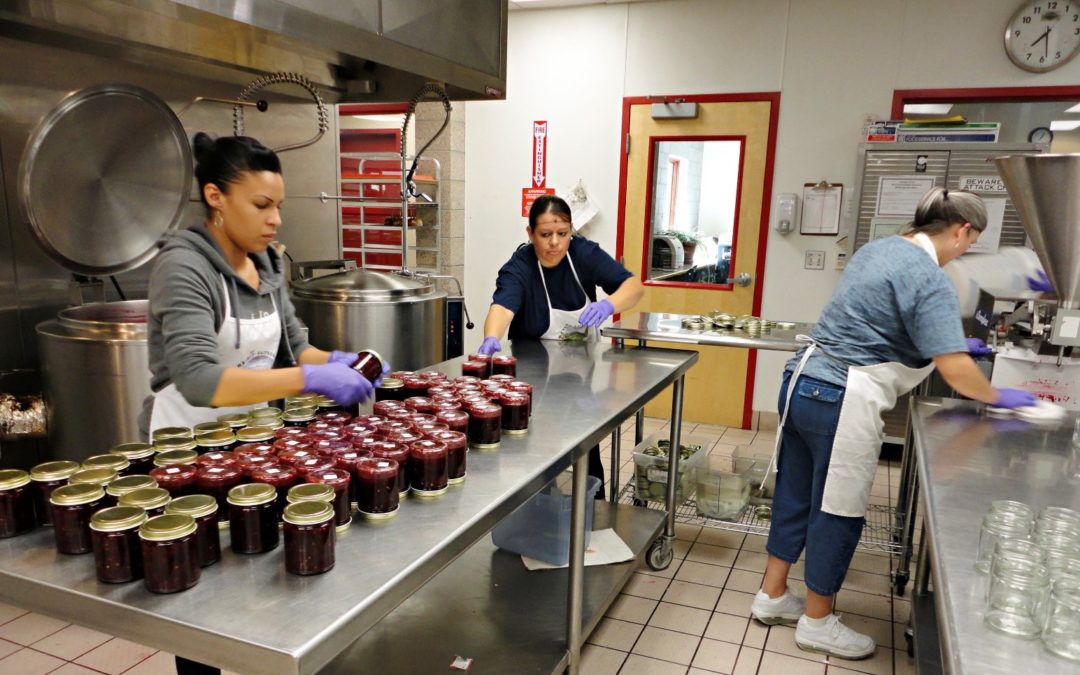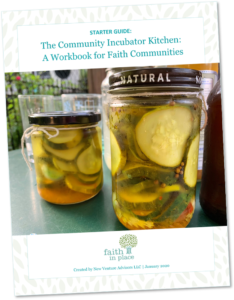Late last summer we were contacted by Open Door Advisors with a remarkable question: “Would you be interested in writing a starter guide to help houses of worship use their facilities as community kitchens?”
YES!
I could not believe that the idea hadn’t already occurred to us. Houses of worship — churches, synagogues, temples, mosques — must be the largest asset base of kitchen facilities outside of homes and restaurants. And for many aspiring food entrepreneurs, moving their business out of their home into a certified kitchen facility is enormously challenging. Some restaurants make their kitchens available during off hours, but the timing is often not convenient. Shared kitchens are opening all over cities, but they are very hard to find in less populated and rural areas.
What isn’t hard to find in these areas? Houses of worship!
And many already have large kitchens to serve meals for the community and congregation. With a few upfits they could be certified as a commercial kitchen space for area farmers and food businesses to manufacture products for sale. So yes, we were definitely in.
Open Door Advisors was completing a study for Faith In Place, an organization that resources faith communities to care for the environment through a variety of strategies, including through sustainable food and land use. The study was funded by the USDA to explore the feasibility of converting faith-based facilities into community kitchens. The starter guide was developed to help faith communities evaluate the prospect for their own facility, congregation and community.
There are a few reasons a faith community might find this appealing. It might enable them to carry out their ministry in a new way. It might engage their staff, volunteers and congregations in meaningful work and service. It might draw in the community to experience fellowship and care. It might strengthen ties with other faith organizations and civic groups that use the space or collaborate in the program. It might expand healthy food options and create small business opportunities in their communities. And it might generate valuable income to contribute to the faith organization’s operating budget.
Faith in Place is eager to see faith communities use the starter guide to evaluate these benefits and learn more about the ins and outs of starting a community kitchen. The guide is written for the novice, with definitions, examples, worksheets and resources to conduct a self-assessment and raise questions that need to be investigated to determine if opening a community kitchen is a good fit for their space, congregation and market.
We hope it will help you or an organization you know give serious consideration to this exciting opportunity. Let us know if we can help!
Click here to download the STARTER GUIDE: The Community Incubator Kitchen: A Workbook for Faith Communities.
Photo courtesy of Open Door Advisors




